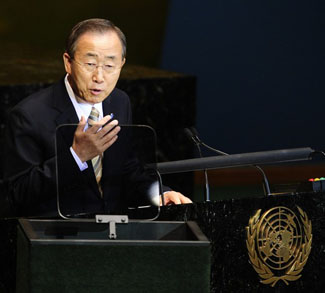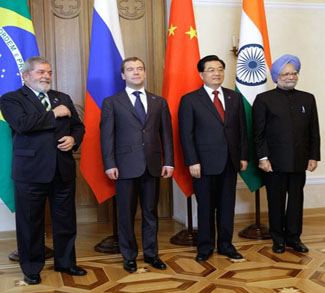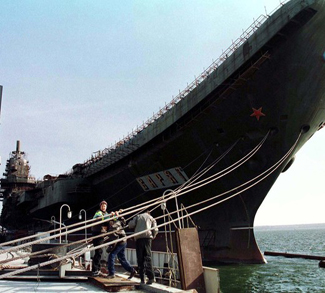Reforming the UN Security Council stands as a key barometer for assessing the international system`s transition from a post-Cold War US hegemony to a more multipolar distribution of economic and military power.
The United Nations has proved itself to be an important forum for resolving international conflict over the past 50 years, and this is mainly because it has legitimacy in the eyes of the international community- a characteristic that was markedly absent in the case of the abortive League of Nations. In other words, the UN works because all parties involved accept that it is, at least on some level, neutral and representative of international society. However, as time goes on, the UN Security Council has become less and less representative of the real economic and military power dynamics that exist in the world of today. France and the United Kingdom hardly enjoy enough global sway to warrant a permanent veto on the Security Council, especially when nascent economic superpowers like Brazil and India remain trapped on the outside looking in.
Thus, the legitimacy that has allowed the United Nations to be effective over the past 50 years is now threatened because the UN still reflects the post-WWII international power structure and not that of the 21st century. This legitimacy crisis comes at a particularly sensitive time, because the transition away from a US hegemonic international order will require strong international institutions to mitigate conflict. For example, when the US military pulls out of Iraq some kind of international coordination will be needed to avoid the country spiralling back into chaos. This is not an isolated example. The process of US military deployments being pulled out and new regional powers moving in to fill their space will create several volatile situations around the world.
The Security Council needs to be reformed if the United Nations is to carry on as a central pillar of the international order, but doing so is easier said than done. The present council only has five veto-welding members, which is more than enough to persistently throw a monkey wrench into resolving certain ‘sensitive’ international issues, such as the Israel-Palestine conflict, Iran, and North Korea. An expanded base of veto-welding states would serve to compound the policy deadlock that is so often experienced in the halls of the Security Council. Just imagine if India were to ascend as a permanent member. It’s almost certain that New Delhi’s first order of business would be to make sure that Kashmir is permanently taken off the table in the same way China keeps Xinjiang and Tibet out of the scope of international institutions.
If the decision-making mechanism of a reformed Security Council represents an enigma, then the actual composition of the council can be considered a Gordian knot. It seems unlikely that France or the United Kingdom will willingly relinquish the last symbol of their former great power status, and their continued inclusion tilts the balance of influence in America`s favour in the eyes of Beijing. Three other countries that would be involved in any discussion on expansion- Japan, India, and Germany- are also close allies of the United States. There’s going to be some huge wheeling and dealing going on behind the scenes over the next few years, and the results of these trade-offs will resonate in the international system for decades to come. President Obama has already fired the first volley in Delhi with the announcement of his support for the Indian bid for a permanent council seat.
The process of UN Security Council reform won’t be starting immediately, and it will surely take an excruciatingly long time to conclude, but the writing is on the wall and all players involved know that it is something that absolutely must happen. Thus, it may be useful to keep in mind that these are the likely goals of the current veto-welding members- all of whose agreement is necessary for any reform to go through.
United Kingdom & France: Survive the reform process with their permanent seat intact. Make bilateral gains around the periphery (example- The UK’s public support of an obvious candidate in Brazil as a way to improve relations with Latin America).
United States: Limit expansion of permanent membership to bare minimum needed to maintain legitimacy of the United Nations. Get Japan in, or at least appear to want to do so to create a fat bargaining chip for the Chinese.
China: Limit expansion of permanent membership. It’s likely that Beijing will try to swap its support for a permanent seat for India in exchange for keeping Japan out.
Russia: Support India and Brazil as most obvious choices for new permanent seats. Try and block Japan and Germany from ascending to the council.




